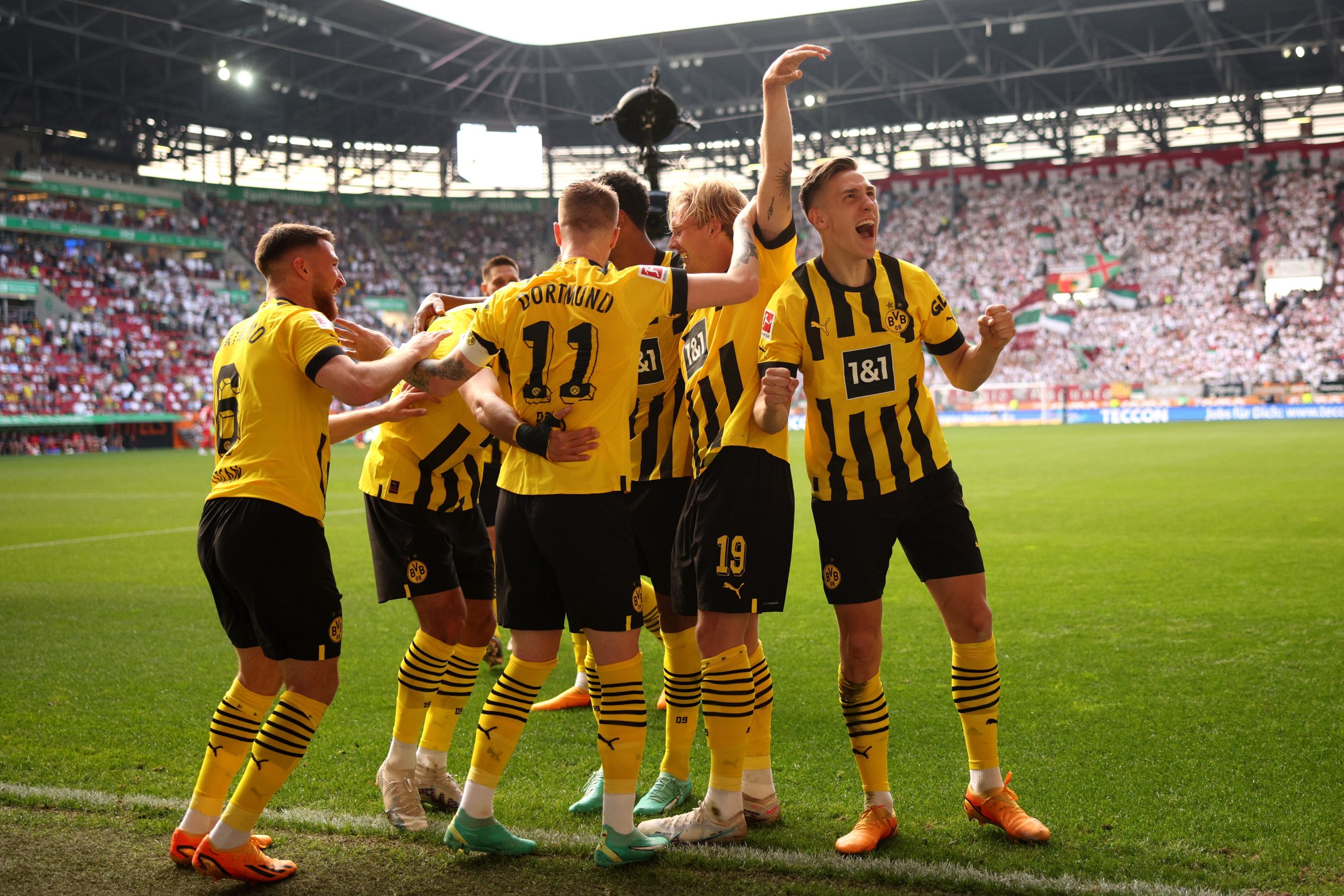Dortmund, a city with a rich history and vibrant culture, has become one of Germany's most dynamic metropolitan areas. Known for its industrial past, football legacy, and modern transformation, Dortmund offers a unique blend of tradition and innovation. Whether you're a sports enthusiast, a history buff, or simply looking for an exciting destination, this city has something for everyone.
As the largest city in the Ruhr area, Dortmund is a hub of economic activity and cultural diversity. Its strategic location in North Rhine-Westphalia makes it an important center for trade, education, and tourism. Over the years, Dortmund has reinvented itself, transitioning from a coal mining powerhouse to a modern, sustainable city that attracts visitors and investors alike.
From its bustling streets to its picturesque parks, Dortmund embodies the spirit of a resilient and forward-thinking community. This article will delve into the history, attractions, economy, and lifestyle of Dortmund, providing a comprehensive guide for anyone interested in exploring this fascinating city. Let's dive in!
Read also:Discover The Remarkable World Of Edo A Comprehensive Guide
Table of Contents
- History of Dortmund
- Geography and Climate
- Economy and Industry
- Cultural Highlights
- Dortmund's Football Legacy
- Top Tourist Attractions
- Education and Research
- Transportation System
- Living in Dortmund
- Future Prospects
History of Dortmund
Dortmund's history dates back to the 9th century when it was first mentioned as "Throtmanni" in historical records. The city grew rapidly during the Middle Ages, becoming a member of the Hanseatic League, a powerful economic alliance of trading cities in Europe. This period marked Dortmund's rise as a significant trading hub.
During the Industrial Revolution, Dortmund transformed into a major coal and steel production center. The city's mines and factories fueled Germany's economic growth, earning it the nickname "Coal Metropolis." However, the decline of the coal industry in the late 20th century forced Dortmund to rethink its future. Today, the city is celebrated for its successful transition to a service-oriented economy.
Key Historical Events
- 1220: Dortmund receives its city charter.
- 1366: Becomes a member of the Hanseatic League.
- 1945: Suffers heavy damage during World War II.
- 1980s: Begins industrial restructuring.
Geography and Climate
Located in the heart of the Ruhr region, Dortmund is surrounded by lush greenery and waterways, making it a perfect blend of urban and natural landscapes. The city covers an area of approximately 280 square kilometers and is situated at an elevation of 140 meters above sea level.
The climate in Dortmund is classified as temperate maritime, with mild summers and cool winters. The average temperature ranges from 2°C in January to 19°C in July. Rainfall is evenly distributed throughout the year, ensuring lush vegetation and vibrant gardens.
Geographical Features
- Emscher River: A major waterway running through the city.
- Hellpfort Park: One of the largest urban parks in Germany.
- Signal Iduna Park: The iconic stadium of Borussia Dortmund.
Economy and Industry
Dortmund's economy has undergone significant transformation over the decades. Once dominated by coal mining and heavy industries, the city now thrives on sectors such as logistics, IT, and renewable energy. Its strategic location near major transportation routes makes it an ideal hub for businesses.
Several multinational companies have established operations in Dortmund, contributing to its economic growth. The city also boasts a thriving startup scene, with numerous incubators and accelerators supporting innovation and entrepreneurship.
Read also:Gianina Love Is Blind Unveiling The Story Behind The Reality Star
Key Industries
- Logistics and transportation
- Information technology and digital services
- Renewable energy and sustainability
Cultural Highlights
Culture plays a vital role in Dortmund's identity. The city is home to numerous museums, theaters, and music venues that cater to diverse tastes. The Dortmund Opera House, for instance, hosts world-class performances, while the Museum am Ostwall showcases contemporary art.
Food lovers will find plenty to enjoy in Dortmund, from traditional German dishes to international cuisine. Local specialties like Dortmunder beer and Westfälisches Sauerbraten are must-tries for visitors. The annual Dortmund Christmas Market is another highlight, attracting thousands of visitors each year.
Cultural Landmarks
- Dortmund Opera House
- Museum am Ostwall
- Dortmund Christmas Market
Dortmund's Football Legacy
No discussion about Dortmund would be complete without mentioning its legendary football club, Borussia Dortmund. Founded in 1909, the club has become one of the most successful teams in German football, winning numerous titles and captivating fans worldwide.
Signal Iduna Park, Borussia Dortmund's home stadium, is renowned for its passionate atmosphere and impressive capacity. With over 80,000 seats, it is the largest stadium in Germany and a symbol of the city's commitment to excellence in sports.
Notable Achievements
- 8 Bundesliga titles
- 5 DFB-Pokal victories
- 1 UEFA Champions League title
Top Tourist Attractions
Dortmund offers a wide range of attractions that appeal to all types of travelers. From historical landmarks to modern entertainment venues, there's something for everyone to enjoy. Here are some must-visit spots:
Attractions in Dortmund
- Westfalenpark: A sprawling green space perfect for relaxation.
- Dortmund U-Tower: A former brewery turned cultural center.
- Old Market Square: The heart of Dortmund's historic district.
Education and Research
Dortmund is home to several renowned educational institutions, including the Technical University of Dortmund (TU Dortmund). This university is known for its strong focus on engineering, natural sciences, and business studies. Additionally, Dortmund hosts numerous research centers that collaborate with international partners to drive innovation.
Students from around the world choose Dortmund for its excellent educational opportunities and vibrant student life. The city's commitment to education ensures a bright future for both locals and newcomers.
Notable Educational Institutions
- Technical University of Dortmund
- Dortmund International School
- University of Applied Sciences Dortmund
Transportation System
Dortmund boasts a well-developed transportation network that connects it to major cities across Germany and Europe. The Dortmund Airport offers regular flights to various destinations, while the city's train station provides efficient rail services.
Public transport within Dortmund is managed by the Ruhrbahn, offering buses, trams, and light rail options. Cycling is also popular, with dedicated bike lanes throughout the city. This comprehensive transport system makes commuting convenient and eco-friendly.
Transport Options
- Dortmund Airport
- Ruhrbahn public transport
- Bike-sharing programs
Living in Dortmund
Living in Dortmund offers a perfect balance of urban convenience and suburban tranquility. The city's diverse neighborhoods cater to different lifestyles, with amenities ranging from shopping malls to farmers' markets. Housing options are plentiful, including modern apartments and historic villas.
Residents enjoy a high quality of life, with access to excellent healthcare, education, and recreational facilities. Dortmund's commitment to sustainability and green spaces ensures a healthy and pleasant environment for all.
Why Choose Dortmund?
- Affordable cost of living
- Access to world-class amenities
- Strong sense of community
Future Prospects
Dortmund continues to evolve, with ambitious plans to enhance its position as a leading European city. Investments in infrastructure, technology, and sustainability are at the forefront of these efforts. The city aims to become a model for smart urban development, leveraging digital innovations to improve daily life for its residents.
With its rich history, vibrant culture, and forward-thinking mindset, Dortmund is poised for a bright future. Whether you're visiting for the first time or considering a move, this city has much to offer.
Conclusion
Dortmund is a city that seamlessly blends its storied past with a modern, innovative outlook. From its historical landmarks to its cutting-edge industries, Dortmund offers a unique experience for visitors and residents alike. Its commitment to sustainability, education, and community well-being ensures a promising future.
We invite you to explore Dortmund further and discover what makes it such a special place. Share your thoughts in the comments below, and don't forget to check out our other articles for more insights into this remarkable city. Thank you for reading!
Data Sources: Statista, TU Dortmund, Borussia Dortmund


